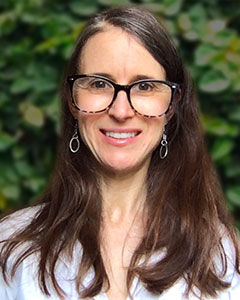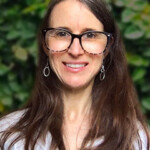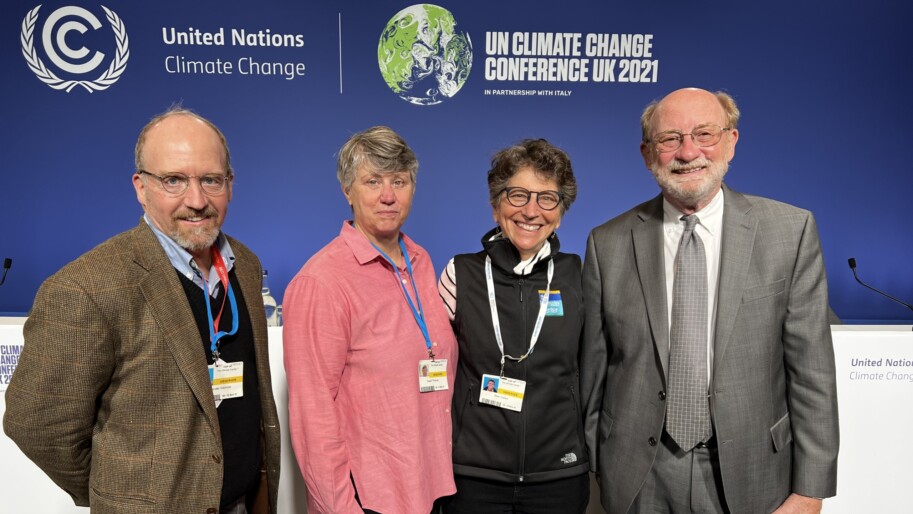In 2021, The Climate Center became an official observer organization of the United Nations Framework Convention on Climate Change (UNFCCC), giving us the opportunity to participate in the COP26 global climate talks in November in Glasgow. Joining CEO Ellie Cohen (second from right) in Glasgow were long-time partner Alex Gilchrist (left) and Board of Directors Chair Susan Thomas (second from left) pictured with California State Senator John Laird.
While the negotiations between world leaders at COP26 yielded mixed results and few firm commitments, there was a lot to learn behind the scenes in Glasgow. I sat down recently with Alex and Susan to discuss their experiences.
Let’s start on a positive note. What are you most hopeful about coming out of COP26?
Alex: I’m most hopeful about two things: the public sector and the private sector. In the private sector, electric vehicles are growing so fast. And EVs have a whole string of ancillary industries attached to them that will grow with them. Also, the shipping industry, the construction industry, and the financial industry are making great strides. On the public side at the subnational level, there’s so much happening that the press doesn’t cover. Columbia, Mexico, Scotland, Wales, and Ireland are making great progress. And Denmark is so far ahead of other countries.
Susan: What is amazing about these convenings is that 200 countries come together and organizations like us get to see what’s happening. What was happening outside is as important as what’s going on inside. I think a ton of good work is being done.
At the same time, there’s been a lot of criticism in the media that COP26 did not achieve enough. What’s your take?
Alex: Failure is what sells papers. Am I disappointed? Sure I am. But I don’t compare it to past COPs and there’s plenty to be hopeful about. One of the underlying themes was cooperation and collaboration.
Susan: I’ve seen the negative press and they’re not wrong. It [COP26] fell far short of expectations of people attending and far short of what’s needed. But there’s no other organization in the world other than the United Nations that can convene 200 countries to come together for two weeks to try to advance commitments on climate change. What that means, though, is that any agreement that comes out of the conference is going to be a compromise document.
Focusing on California, Governor Newsom did not make the trip to Glasgow but Assembly Speaker Anthony Rendon was there. He said during the conference that California is not leading on climate anymore. What’s your response?
Alex: I like that he’s rattling cages. Go and encourage the masses to do better. It’s great. Very motivational.
Susan: California is no longer a leader in climate change policy. This is very distressing to a number of officials in the state legislature, and it should be. We are the fifth-largest economy in the world and we have outsized influence, so for us not to be lagging behind is unconscionable. I do feel hope that our current legislators can do more, but the oil and gas lobby is very powerful in California. We all need to hold elected officials accountable for their action or inaction on climate.
How did being at COP26 change the way you think about The Climate Center’s work and the Climate-Safe California campaign?
Alex: It [Climate-Safe California] goes past where the groupthink is. We have to go past carbon neutral to net negative emissions. I think it’s a very comprehensive approach and I like the fact that it’s aggressive. A lot of people are missing the ability to use natural lands to sequester carbon. I think it’s absolutely the right approach.
Susan: I think what we’re doing at The Climate Center to affect state policy is really important and necessary. The fundamental strategy is the right thing to do because it’s the fastest way to affect change. We’re very focused. Legislation is the fastest way to change behavior and that’s our thing.
How has your time in Glasgow changed the way you see yourself within the climate movement?
Alex: I stopped seeing myself as just part of the masses in the protest movement. I’ll continue to protest, but I’m going to educate myself further. I learned what I didn’t know in Glasgow. Now I need to be more outspoken in my circles. As a consumer, when I walk into a business, I’ll ask about their supply chain to be sure it’s carbon neutral.
I’m part of a faith community with more than 200 members. There’s a spiritual dimension to this. We want to care for the planet that we all live on. It is our home and nurtures all of us in so many ways. Forty percent of the United States is still anchored to a faith community, so it’s a big chunk of us who can have influence.
Susan: COP26 didn’t change my position in the climate movement, but it made me understand more about the limits NGOS and individuals have and our power to whittle away at the powers that be. As long as we keep the drumbeat going, that’s what we can do.
What about COP26 or anything you learned at the conference surprised you?
Alex: As far as ‘aha’ moments, the natural world’s role in sequestering carbon is what surprised me most. Of course, we know the ocean is a carbon sink, but things like peatlands. I happen to enjoy whiskey every now and again and of course, whiskey is flavored with peat. I wondered what the difference is between peatlands and wetlands. It turns out there’s a huge difference and peatlands are actually more important for sequestering carbon. That was hugely educational for me.
Susan: Being there energized me to make sure that I enlist people to get involved. I sent a lot of info back to people I know. That kind of energy is what I came away with — not just a base of knowledge, but passion.
To end on, what’s one moment or observation that inspired you?
Alex: There was an exhibit in one of the buildings that looked like a giant honeycomb and inside of each little honeycomb compartment was a two to three-sentence thought. One of the ones that really stood out for me was one that said ‘we’ve inherited this beautiful globe that sustains and nurtures us all. It’s time for us to be good ancestors.’ That really stuck with me.
Susan: There were NGOs and university students there every day who, in real-time with the simplest of equipment, were reporting on the conference. This helps with accountability. Anyone can document climate change and voice opinions. I found that really inspirational. Artists and filmmakers with the barest of equipment can talk about climate. It doesn’t actually take that much to do this!
Note: This interview has been edited for length and clarity.


